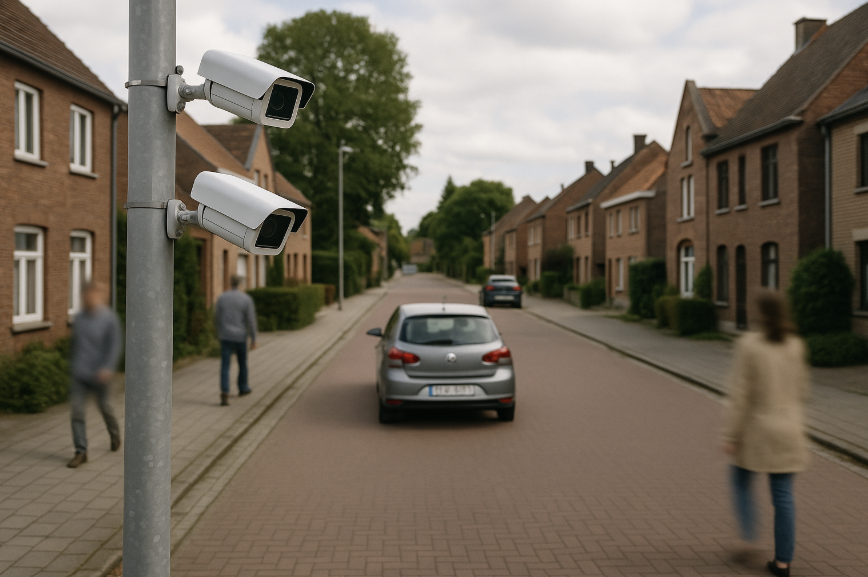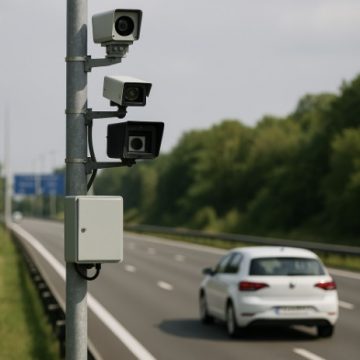Flemish Data Protection Authority sanctions municipality for breaching residents’ privacy
Speed and Privacy: Grimbergen Ordered to Remove ANPR Cameras
For the first time in Belgium, a municipality has been required to deactivate its speed control camera system. Grimbergen, in the Flemish Brabant region, was recently sanctioned by the Flemish Supervisory Commission (VTC) for violating the privacy rights of its residents.
The municipality had implemented section speed control using ANPR cameras (Automatic Number Plate Recognition) across about ten streets as part of a new mobility plan. These cameras automatically read number plates to enforce speed limits. However, several residents voiced concerns about the cameras’ real purpose and their impact on privacy.
Lack of transparency and questionable motives
According to the VTC, the municipality failed to demonstrate that ANPR cameras were the least intrusive option. Alternatives such as traffic calming measures (e.g. road narrowings) were not seriously considered. Moreover, citizens received conflicting explanations from the authorities regarding the use and objectives of the system.
Worryingly, the VTC found that traffic safety may not have been the primary motivation. Instead, the municipality appeared to expect a steady stream of revenue from speeding fines. According to the VTC, this financial goal was incompatible with data protection laws.
Strict conditions and legal rejection
The Commission ruled that continued use of the cameras could only be allowed if strict conditions were met: a significant reduction in the number of ANPR cameras, and automatic blurring of pedestrians and cyclists captured on video. Grimbergen tried to suspend the decision through an urgent procedure before the Council of State, but the attempt was unsuccessful.
Despite the ban, the cameras remained in use as of late April 2025, prompting strong criticism from the opposition. Hans Graux, chair of the VTC, emphasised that such surveillance systems must remain exceptional: “Their use has become normalised, even though they pose a serious risk to citizens’ rights and freedoms.”
Implications for other municipalities and legal actors
This case sets an important precedent regarding the balance between road safety and personal data protection. It sends a clear signal to local authorities and service providers – including insurers and mobility actors – that surveillance technologies must be handled with great caution.
From a legal perspective, the decision highlights:
-
the importance of proportionality when processing personal data;
-
the obligation to ensure transparency towards citizens;
-
the prohibition on implementing surveillance systems primarily for financial gain.
The Flemish Minister for Mobility, Annick De Ridder (N-VA), has already commissioned a study to assess whether other municipalities are prioritising revenue over safety. The coming months will be crucial for determining the future use of ANPR systems in Belgium.




